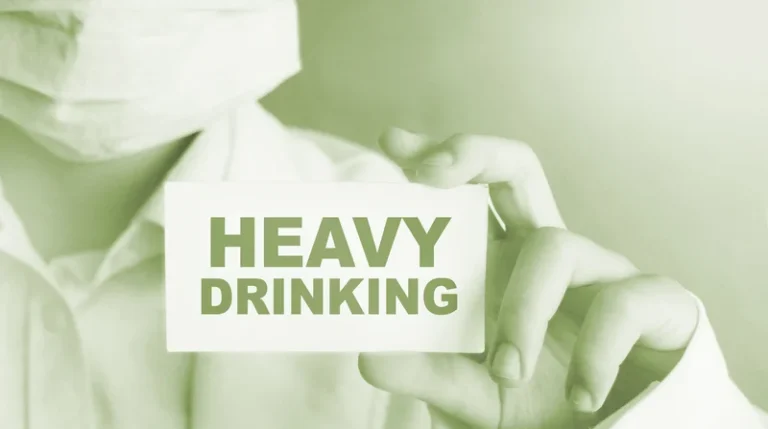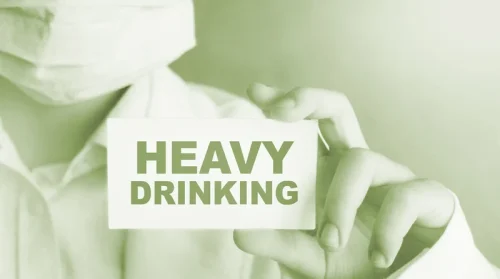
That is why pregnant women have so many recommendations around amphetamine addiction treatment food, supplements and medications, and are instructed to abstain from alcohol, nicotine and illicit drug use. The interprofessional healthcare team can improve care for pregnant women with substance use and SUD. SUD is a complex medical condition requiring empathy, knowledge, and skills from a team of caregivers working together.
Low Molecular Weight Heparin (LMWH)
- When maternal nutritional status is compromised by alcohol and drugs of abuse the supply of essential nutrients are not available for the fetus; this can result in fetal abnormalities like Intrauterine Growth Restriction (IUGR) or Fetal Alcohol Spectrum Disorder (FASD).
- Pregnant people with methamphetamine use disorder can have many pregnancy complications, mainly related to the drug’s effects on them.
- When costs for special education, long-term medical management, and lost productivity across the lifespan are considered, the socioeconomic impact is truly staggering.
- Alcohol can interfere with the uptake of essential aminoacids and vitamins, particularly B1 (thiamine), B2 (riboflavin), B6 (pyridoxine), vitamin A and C and folic acid.
- If you do choose to drink while breast-feeding, make sure to avoid giving your child breast milk until the alcohol has been cleared from your body.
- A study of non-pregnant alcohol abusers in the United Kingdom found that all participants had low intake of vitamin E and folate, and most had low intake of other nutrients like selenium, calcium, zinc, Vitamins A, B1, B2, B6, C and D 33.
However, even moderate exposure can impact brain development and these effects persist at least into young adulthood. As described in a 1996 Institute of Medicine Report to Congress—‘Of all the substances of abuse (including cocaine, heroin, and marijuana), alcohol produces by far the most is it safe to drink alcohol while pregnant serious neurobehavioral effects in the fetus.’ (Institute of Medicine, 1996). It has been estimated that at least 1 per 100 (1% of live births) are affected by FAS or FASDs (Sampson et al, 1997). Twelve percent of pregnant women self-report alcohol use within the past month (Substance Abuse and Mental Health Services Administration, 2008). A recent Australian study found that women who binged only before pregnancy were more likely to continue (55%) rather than reduce drinking (29%) once pregnant (Anderson et al, 2014).

Alcohol consumption during pregnancy
- Drinking in pregnancy can lead to long-term harm to the baby, with the more you drink, the greater the risk.
- Probably micronutrient supplementation would in part reverse the toxic effect of alcohol and drugs of abuse on fetal neurological development, although it is difficult to establish the optimal range of micronutrients during pregnancy.
- Only a handful of animal models of pre- and perinatal MDMA exposure have been developed as well.
Where resources allow, collaborative care with mental health or addiction services should be offered. Given the high rates of relapse, long-term care is required with assertive outreach and relapse prevention strategies. More research is needed on pharmacological treatment options for substance using pregnant women. Miscarriage is the death of a baby in the womb before 20 weeks of pregnancy. According to the National Institutes of Health (NIH), smoking tobacco or marijuana, using illegal drugs, or misusing prescription painkillers during pregnancy increases the risk of stillbirth by two to threefold. Heavy alcohol use (more than three alcoholic drinks daily) during pregnancy increases the risk of spontaneous abortion by more than threefold.
Pregnancy and Substance Use

As more and more states legalize recreational marijuana, the effects of this drug on the fetus are an increasing public health concern. The CDC estimates that 1 in https://ecosoberhouse.com/ 20 women in America uses marijuana while pregnant. Studies reveal that reducing illicit substances substantially reduces the risk of abortion.

For women trying to conceive, tobacco use makes it harder to become pregnant. Miscarriages are more likely in smokers, and there is an increase in the abortion rate by 33 percent. The risk of infections is higher in the unborn child if the mother is a smoker. Newborns can experience withdrawal after birth if their mothers have used alcohol or other substances during pregnancy. Not every baby born to a mother who used alcohol will experience withdrawal, and researchers are still examining why this is the case.

Conversely, in mothers with high BMI the additional adipose tissue helps distribute the alcohol, and therefore, protects the fetus. Ethanol crosses the placental barrier so maternal consumption generates prolonged periods of exposure in the fetus causing severe damage to developing structures 73. If fetal exposure to alcohol increases for mother malnutrition, the consequence is the increment of the risk of teratogenic effects resulting in suboptimal outcomes like IUGR or FASD. High blood alcohol concentrations often decrease the transfer across the placenta of essential nutrients required for fetal development 17.

More on Health & Pregnancy
Accordingly, this review tries to underline evidence of potential target nutrients for prenatal nutritional supplementation by focusing specifically on alcohol and drug metabolism effects on fetal development nutrient deficiency and their interactions with alcohol or drugs consumption. The identification of such nutrients can ameliorate the harmful effects of alcohol and drugs of abuse on fetus, preventing long-term disability. Appropriate screening for addiction in all women of childbearing age, preconception health promotion and referral to substance abuse programmes for those women identified to have an addicted disorder, could be done in all primary care settings. Programs of education and screening of women of childbearing age remain the most important ways to reduce addiction in pregnancy. The metabolism of caffeine and other methylxanthines is impaired in pregnant women, fetuses and neonates, leading to reduced clearance and potentially higher circulating levels (Aden, 2011). Several clinical studies have focused on concerns regarding caffeine-induced fetal growth restriction and have led to suggestions that women should reduce caffeine intake before conception and throughout pregnancy (Bracken et al, 2003; CARE Study Group, 2008).
